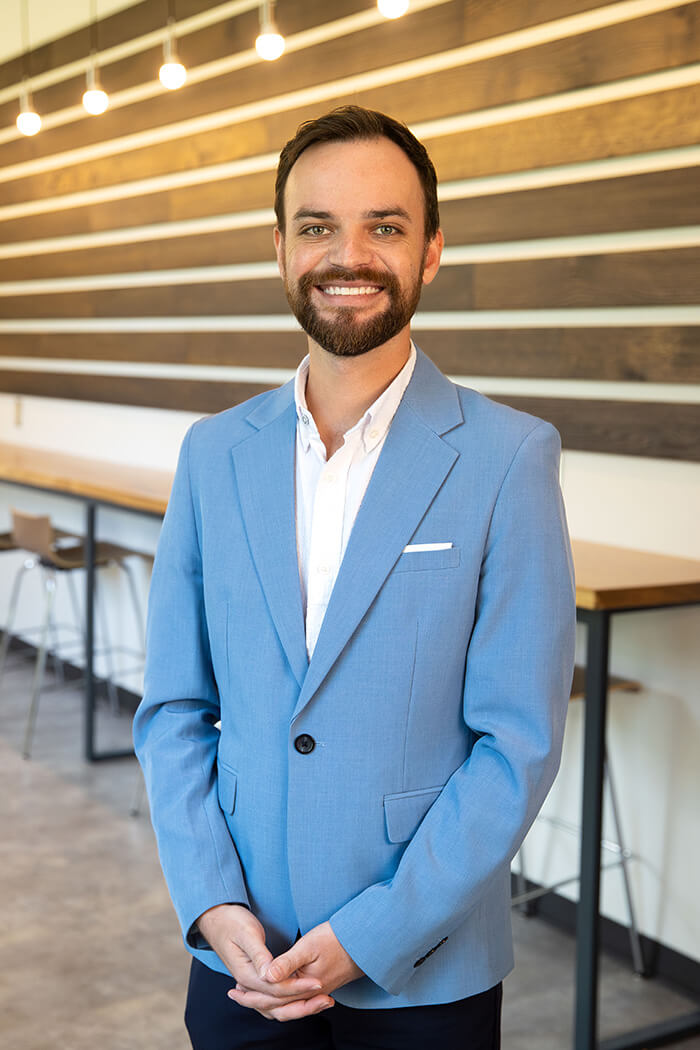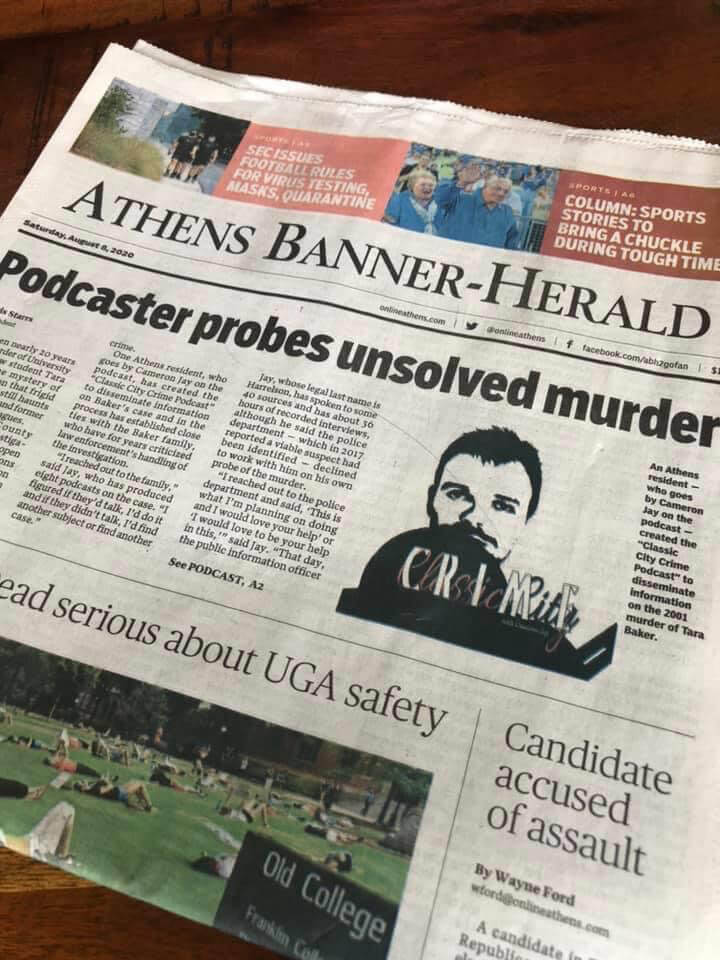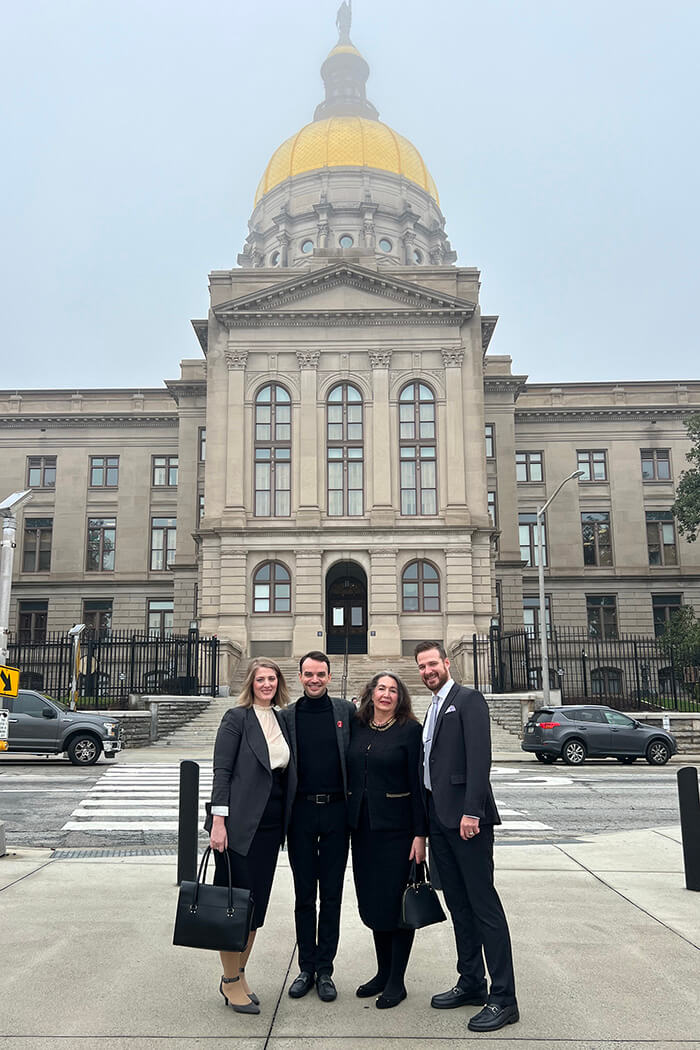Cold Cases and Hot Pursuits: UWG Alumnus Transforms Tragedy into Advocacy Share this page

In the world of unsolved crimes and forgotten cases, one University of West Georgia alumnus is turning the spotlight back onto the victims whose stories have been overshadowed for far too long.
As the host of his own podcast “Classic City Crime,” Cameron Jay Harrelson ’24 recounts the details of cold cases while also rewriting the narrative around true-crime media. His journey began in the small town of Baxley, Georgia, and led him to earn his bachelor of science in criminology at UWG.
“Criminology was not originally my passion,” said Harrelson. “I was extremely interested in politics and running local campaigns throughout high school. However, the unexpected losses of my cousin and childhood best friend redirected my path. These life-altering tragedies shifted my focus to victim advocacy in seeking justice for those whose stories have been overlooked.”
These experiences – combined with his work at a funeral home in Athens, Georgia, where he served countless families and witnessed first-hand the grief and loss that accompanies homicides – deepened his passion for victim advocacy and storytelling. It was here that he developed a keen interest in true crime, though he quickly became disillusioned with the way many podcasts treated victims’ stories.
“The one thing that troubled me about most crime podcasts was how they often seemed to skip over the victim and only focus on the offender,” said Harrelson. “I wanted to start a true crime podcast that changed the normal narrative. I wanted to share the story of victims who had been left behind and overlooked.”

Through “Classic City Crime,” Harrelson met the Baker family and was deeply influenced by them, particularly by Tara Baker’s story, whose unsolved case from 2001 became a central focus of his work.
“When I first met the Baker family, I told them that my goal was not to solve Tara’s case but to share her story and what happened to her,” recalled Harrelson. “Tara’s mom, Virginia Baker, is the reason I decided to attend UWG. She told me that if I wanted to make a difference, I needed to equip myself with the best tools possible."
Harrelson’s dedication to victim advocacy extended beyond his podcast. His efforts contributed to the passing of the Coleman-Baker Act, a significant legislative achievement aimed at improving the handling of unsolved cases in Georgia.
But as that act was being signed into law, Harrelson’s life took an unexpected turn, as he was diagnosed with Hodgkin’s Lymphoma. After nine months of intensive treatment, he remained dedicated to his education and podcast with the encouragement of his friends, family and community.
“Throughout my treatment, I reminded myself that whatever I was going through would never compare to what the Baker family has gone through for the last two decades,” he explained. “With the encouragement of the Baker family and the kindness of UWG faculty and staff, I maintained my good academic standing and came out of treatment cancer-free.”

Two days before his graduation from UWG – during which he was highlighted as a standout graduate – Harrelson received news that Tara Baker’s case had been resolved, becoming the first case solved by the newly established cold case unit under the Coleman-Baker Act.
“It was overwhelming,” recalled Harrelson. “I felt a mix of relief and sadness. Tara’s story finally had a resolution, and while there was a finally a sense of justice for Tara’s family, the reality of her loss remains a reminder of the work needed for all victims.”
Following his treatment, Cameron found his next calling at The Cancer Foundation as a relationship manager, bringing the same dedication and empathy to his role as he did to his podcast and advocacy work. With all of his achievements, Harrelson still credits UWG for helping him grow both professionally and personally.
“Being a post-traditional student, I have learned it is never too late to be who you want to be,” said Harrelson. “No matter how far I lived from campus or what challenges I faced, I always felt like I belonged at UWG. The support and community made all the difference in showing me that there is always a place for those who are determined to follow their dreams.”
Check out more of our conversation with Harrelson on Instagram.
